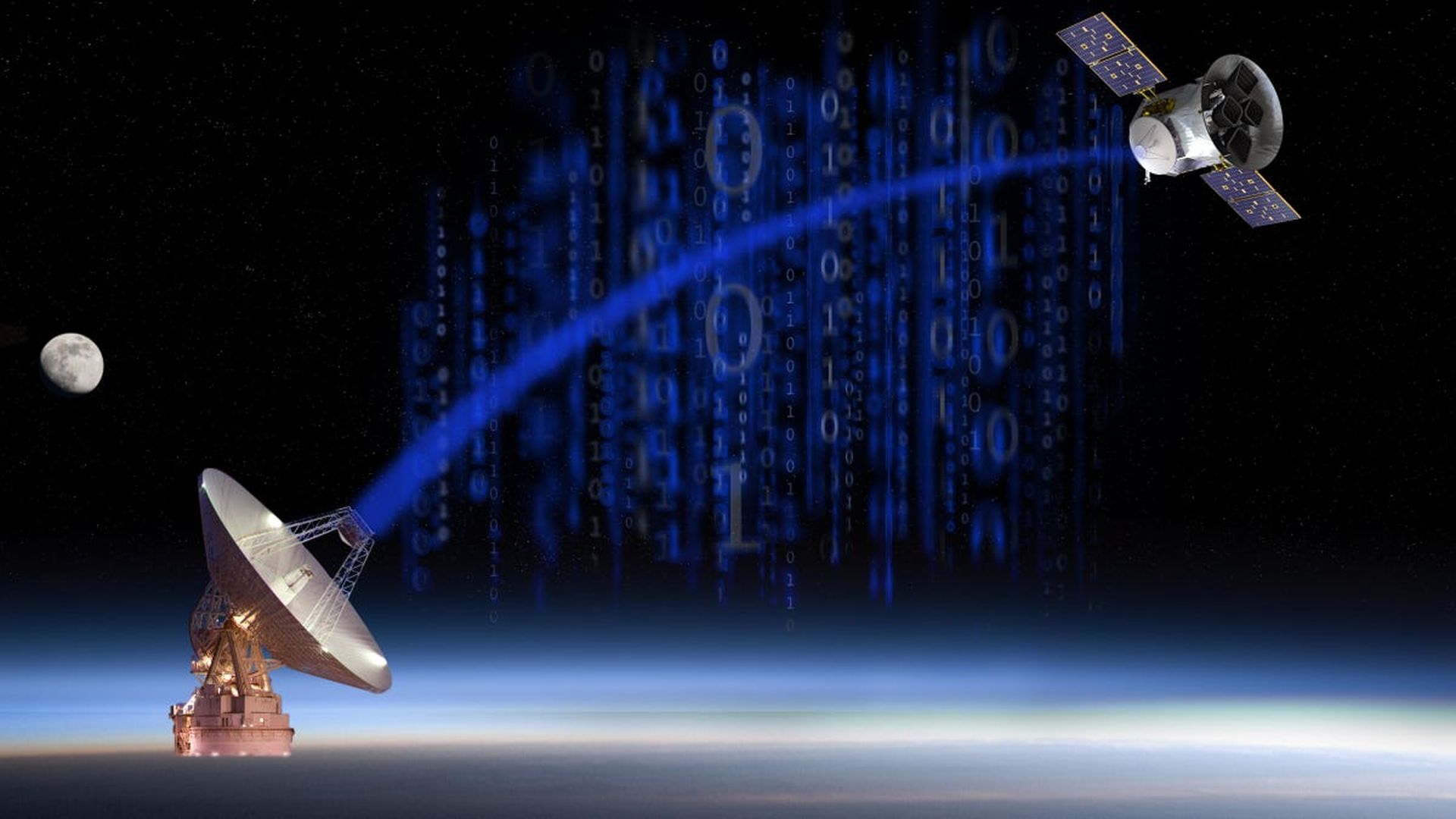How susceptible are the hundreds of satellites being managed by the government that is zipping through space over our heads?
A group of researchers demonstrated that they could hack into a satellite operated by the European Space Agency and seize complete control of its image, maneuverability, and communication systems.
As part of the current CYSAT conference hosted by the ESA, the breach was a controlled hack. In a statement on Tuesday, Thales, a global technology business, claimed that a cybersecurity team had completed the ESA’s Hack CYSAT challenge and taken control of an OPS-SAT nanosatellite that had been sent into low Earth orbit in 2019.
The penetration gave the hackers access to the satellite’s onboard camera as well as its attitude control and global positioning systems.

Hackers manipulate government satellites in an alarming experiment
The researchers didn’t push the satellite to perform any insane antics while it circled the earth, according to the ESA, which stated it remained under their control during the test. The cybersecurity team, however, claimed that they entered the satellite’s control interface using conventional access permissions after gaining access to the satellite’s onboard system. The researchers then demonstrated that they could also infiltrate the system with fresh, malicious malware.
A hacker could be able to hide oneself from the circling eye in the sky by masking some of the satellite’s image equipment, according to the team’s presentation of their hack at the conference on Thursday. Of course, having access to a satellite’s attitude controls and GPS may lead to all sorts of nefarious deeds.
According to Pierre-Yves Jolivet, vice president of cyber solutions at Thales, “the space industry needs to take cybersecurity into account at every stage in the life cycle of the satellite, from initial design to systems development and maintenance.”

China is working on methods to ‘seize control’, CIA says
Satellite hacking is a worst-case scenario for operators, and space-using governments all over the world are becoming increasingly concerned. According to a leaked CIA assessment, China is working on methods to “seize control” of Western satellites, according to the Financial Times. The document, which was recently leaked by the Pentagon and is believed to have been the product of a 21-year-old government IT employee, explains how China may imitate signals sent from the ground to orbiting satellites to take control of other countries’ systems. By assaulting base stations, China has been connected to previous breaches of American surveillance satellites.
Additionally, this is not the first time ordinary people have demonstrated that they can hack the expanding constellation of satellites in low Earth orbit using ground-based systems. With his unique modchip, a Belgian researcher demonstrated last year that he could hack a SpaceX Starlink terminal. As a result, he was able to add his unique code to the network. Without really performing any incursion, another academic team from the University of Texas was able to take control of a Starlink signal.
The new satellite task force proposed by U.S. Congress
Commercial satellite systems have shown to be quite flimsy. When the invasion of Ukraine first began in February of last year, internet users in Europe reported severe service outages. Cybersecurity specialists described how Russia managed to hack numerous widely used satellite internet systems from businesses like Viasat in a piece published by Bloomberg last month, despite U.S. intelligence agencies alerting businesses about their cybersecurity weaknesses.

That hack, according to Bloomberg, involved Russian hackers accessing the business’ computer systems to cut off connections. The satellites themselves were not under the control of the hackers.
A plan to increase funding for fortifying the security of American satellites was submitted by a bipartisan group of senators at the beginning of 2022. The Congressional Budget Office reported that the planned satellite task force would cost little under $3 million yearly, although the measure has not yet reached the Senate floor.
The U.S. Air Force’s Air Force Research Laboratory and Space Force have collaborated on their respective Hack-A-Sat contests, which give rewards to anybody who can identify satellite weaknesses. The military organization said last week that it was starting a new competition for hackers to seek for weaknesses in its Moonlighter test satellite while it was in low Earth orbit. It is anticipated that Moonlighter will go up in June and operate in August.
Are you into cybersecurity? Then you should check our article The Role of cybersecurity in compliance.





